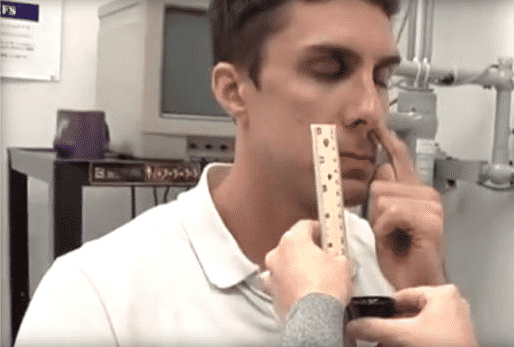How to test yourself for Alzheimer’s Disease by Top Water Ionizers
The Peanut Butter test comes from a recent scientific breakthrough and gives you a simple way to see if you should talk to your doctor about Alzheimer’s disease. The test is very simple to do, but keep in mind that it is not a medical diagnosis! This test doesn’t replace the opinion of a medical doctor, but it does serve as a useful way for you to determine if you need to go see your doctor for a medically-accurate diagnosis.
The Left-Right Nostril Difference Alzheimer’s Disease Test

Researchers discovered that people who may be at risk for Alzheimer’s have reduced sensitivity to odors in their left nostril. So scientists used peanut butter and a ruler to test a group of people – some considered to be at risk for Alzheimer’s and some not at risk. People in the not-at-risk group could smell the peanut butter with either nostril when it was about 15 – 20 centimeters away. The people though to have Alzheimer’s smelled the peanut butter 15 – 20 centimeters away with their right nostril, but only smelled it 5 centimeters away with their left nostril.
How to do the Left-Right Nostril Difference Test
It takes two people to do this test. The person being tested should close their eyes, and block one nostril. The person being tested should breathe normally through their remaining open nostril.
The person doing the testing should then hold a ruler up to the base of the nose. Then hold an open jar of peanut butter up to the end of the ruler. Slowly begin moving the peanut butter up the ruler, towards the nose. The person being tested should report it as soon as they smell the peanut butter. Ideally, you should repeat the test a few times to make sure your results are consistent.
Alkaline water shown to have neuroprotective potential in lab study
There is currently no cure for Alzheimer’s known to medical science. However, a 2011 laboratory study suggests that alkaline water may have the potential to protect neural cells from oxidative damage. The study, called The neuroprotective effects of electrolyzed reduced water and its model water containing molecular hydrogen and Pt nanoparticles tested alkaline water to see if it protected nerve cells from oxidative damage. Researchers reported that alkaline water “significantly reduced the cell death” in laboratory testing. Which lead the researchers to conclude:
The results suggest that ERW (electrolyzed reduced water) is beneficial for the prevention and alleviation of oxidative stress-induced human neurodegenerative diseases.
This study was limited to lab testing however, it was not tested in humans. Any doctor will tell you that the inside of a human body is a lot more complicated than a petri dish! To confirm the results of this kind of study, clinical trials in humans would have to be conducted.
Life Ionizers urges you to talk to your doctor if you think you may be suffering from any kind of neurodegenerative disease, as there are medications that may slow the progress of the disease. The sooner you see your doctor, the better! If you are considering alkaline water, you should think of it as a healthy addition to your diet.
Need to know if alkaline water can help you regain control of your health? Call us at 877-959-7977 for a personalized healthy water consultation. We’ll discuss the latest medical research with you and help you decide.
References
Yan, H, , and et al. “The neuroprotective effects of electrolyzed reduced water and its model water containing molecular hydrogen and Pt nanoparticles.” BMC Proceedings. Europeans Society for Animal Cell Technology, 22 Nov 2011. Web. 29 Oct 2013. https://www.biomedcentral.com/1753-6561/5/S8/P69
Jaslow, R. “Cheap Alzheimer’s test made from peanut butter and ruler, researchers report.” CBS News. CBS News, 10 Oct 2013. Web. 29 Oct 2013. https://www.cbsnews.com/news/cheap-alzheimers-test-made-from-peanut-butter-and-ruler-researchers-report
1 comment